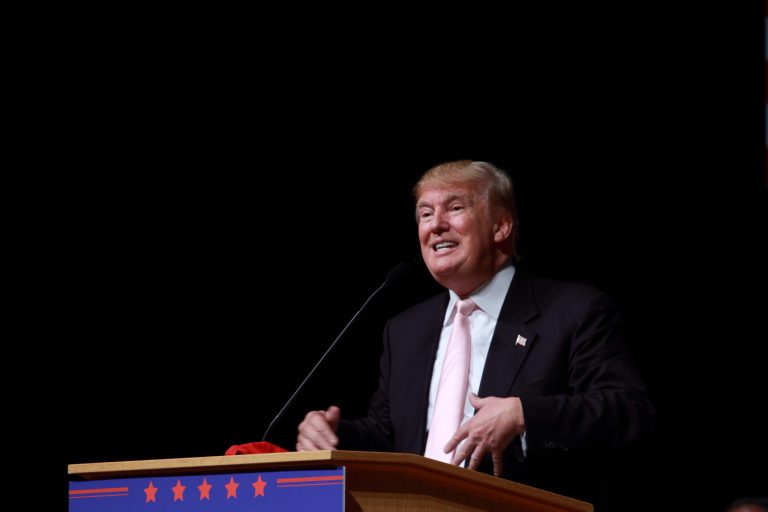With the US presidential elections just a month away, political rhetoric is intensifying, as candidates focus on improving the country and its economy.
Dave Ramsay, CEO of Ramsay Solutions, interviewed former US president and Republican presidential nominee Donald Trump, discussing issues that resonate with the average American.
Ramsay pointed out that many are grappling with “$8 eggs, $5 gas, 7% interest rates, and a house they can’t afford, with wages lagging behind rising house prices.”
He sought Trump’s views on his economic plan to address these pressing concerns.
Here are the key takeaways:
‘Drill baby drill’: Promise to halve energy costs in less than a year
Trump promised to bring down energy costs to 50% of current levels within less than a year, to bring down inflation.
To achieve this, Trump said he would order drilling and fracking, removing unnecessary regulations, and reissuing government leases for energy development.
He believes that lowering energy costs will have a ripple effect, bringing down the prices of other goods and services.
On Ramsay’s question about whether he will turn back on Keystone pipelines and stay true to the line he used in his acceptance speech at the convention, “drill baby drill”, Trump said:
‘It says it all, I’d like to use another line that’s better and we’re going to drill baby drill.”
He pointed out that previous actions to halt energy production, such as shutting down the Keystone Pipeline and drilling projects, severely impacted the economy.
Trump said had it not been for actions taken by the Biden administration, the US would be dominating the entire world on energy.
Will bring down corporate tax rate to 15%
Trump shared plans to lower taxes further in his administration.
He noted the success of reducing the corporate tax rate from 39% to 21%, which spurred economic growth.
Now, his goal is to lower it further to 15%, but with a condition: companies must manufacture their products in the United States to benefit from this reduced rate.
In addition to this tax cut, tariffs will be imposed on foreign countries to prevent them from undercutting US industries, particularly referencing the furniture and steel sectors, where China had previously dominated.
Trump explained how tariffs helped save the US steel industry, and his proposed tax cuts aim to make American businesses more competitive globally.
The reduced tax rates would also likely result in higher federal revenue, similar to the effects seen during both his and Reagan’s administrations.
As he emphasized, cutting the tax rate to 21% was considered impossible, yet it was achieved, and now the goal is to go even lower while keeping jobs and production within the country.
In the first full year of lower taxes, the US saw increased revenue despite the reduced rates, which helped address the deficit.
Trump compared this to Bill Clinton’s administration, noting how cost-cutting measures, along with tax policies, nearly balanced the budget.
On Elon Musk and cost-cutting
Trump also highlighted potential areas for further cost-cutting without hurting essential services like Social Security, which he aims to protect from cuts or age hikes. He said,
“We have plenty of cost-cutting to do too and that’s okay. In fact, I am going to ask Elon, who’s a great guy…and he’s got a good sense on that.”
However, he raised concerns about the strain on Social Security and Medicare, attributing this to the influx of migrants and poor economic policies under the current administration.
Tariffs to protect small businesses
He emphasized the importance of giving small businesses a level playing field for them to survive.
His approach to supporting them includes creating a level playing field through tariffs, which he considers crucial to protecting American industries.
He recalled how China aggressively undercut American businesses, particularly in industries like steel and furniture.
By imposing tariffs, Trump argued, American industries could remain competitive and prevent foreign countries from driving US companies out of business.
“The word tariff to me is a very beautiful word because it can save our country, truly.”
He further elaborated on historical success with tariffs, citing the 1890s when the US was at its richest due to tariff policies under President McKinley.
Tariffs were so effective at generating revenue that the government established committees to decide how to spend the surplus, he said.
Trump believes similar strategies could revitalize modern American industries and bring wealth back to the country.
“Our country was so rich. They didnt know what to do with the money…we can turn our country around, make it strong, and then guard it with tariffs.”
The post What Trump said about ‘$8 eggs, $5 gas, 7% interest rates’: Key takeaways from his interview with Dave Ramsey appeared first on Invezz

